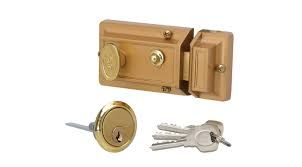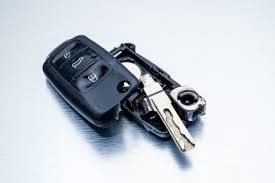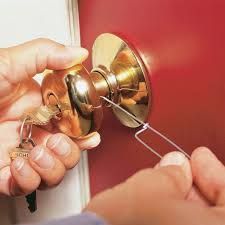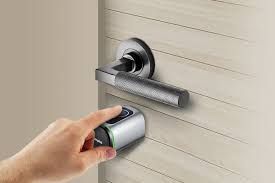Why avoid cheap locksmith ? Fake Online Locksmiths = Scams
Locksmiths are skilled technicians who supposedly can open most locks with minimal effort. These guys make a livelihood by handling and picking locks. Therefore, in any mishap with locks, be it a loss of keys, a broken lock, or some other emergency, we all call for the best locksmiths around us.
They can be your savior on a winter night when you have locked yourself out of your house or the quickest way to ensure that your security is maintained by fixing or replacing broken locks.
Are you looking for a cheap locksmith nearby?
In the case of seeking a cheap locksmith, what most of us do is a search on Google or some other search engine for cheap locksmiths around me or key phrases similar to that.
Most of the time you will be greeted with a host of different so-called cheap locksmith services that can help easily pop a lock .
Whether it be cheap locksmith Brooklyn for the Brooklyn area or in general a cheap locksmith in my area. Many options suddenly turn up on the maps.
Upon calling these services, you will be told that help will be on the way and how much you will be charged. But do not fall for that eyewash. The cheaper locksmith industry is filled with scams, inexperienced employees, and inexplicably low prices.
Even in New York City, if you fall for such scams and search for cheap locksmith New York City , in no time you will find many options around you. However, once you carefully start analyzing each of them, you shall realize how many of them are dubious companies or employees turning up at your doorstep literally from non-existent organizations.
3 reason why you need to think twice before you call for a cheap locksmith service
Now, at first glance, you might think that a cheap offer is legit and very helpful. Plus the low prices charged and minimum response time might make you subscribe to the locksmiths you just found out.
Hold that thought and first read through these three most common reasons, why those “cheap locksmiths” might actually not be a good decision after all.
‘Cheap’ as a Marketing strategy
After a few searches and calls to these locksmith services, you will realize that the word cheap is just used as an advertisement scam. Most of these service providers charge as high as just 30 USD to reach the scene and then starting from 30 to 50 USD to hundreds of dollars for the actual lock service.
No certification whatsoever
You called a locksmith, he arrives at your front door. However, most of the time we find these individuals not carrying any kind of company identification tags and cards or wearing uniforms or anything else.
When they arrive and claim the only way to open your door is to break the locks, they do not even try to do the lock picking and want to just get over with the job.
Changing locks is a costly affair
The person in peril who called the locksmith agency for help, and the individual who arrives tells you that the only way to open the door is to break the lock. Even without trying to pick the lock which is one of the most essential tasks of a locksmith, these individuals will just break the lock into pieces and open the door.
Most of us will agree with them breaking the locks, as we do not know much about how most locks work anyways. But the scam does not nearly end here. After breaking your lock, the locksmith will try to sell you a supposed high quality very expensive lock. A quick search on Amazon door locks will show you how cheap and low quality it is. You can buy the overpriced lock they are trying to sell you at Walmart door locks at a much fair price.
The smiths charge us, the customers, exorbitant prices with no guarantee for themselves or even for the products they are selling to us.
5 tips on How to Avoid locksmith scams?
As the internet continues to get filled with fake locksmith services, here are a few tips just for you to avoid such scams.
Search Beforehand
Though this might sound like a lot of work, in times of emergency this ensures that you do not get swindled. Take your time, go through the local businesses and find a legitimate locksmith service with real customers in your neighborhood.
This automatically gives you feedback about the service the company provides and helps you get the best service when needed.
Check Certification
Always check if the locksmith is from the company you contacted. Without proper identification proof, it is not safe for you to allow them to break into your house or car. Ask them to show an identification card or prove somehow that they belong to the respective company.
Cost estimate is a must
The 14 to 30 USD charges in the ads are just to grab your attention. No way can locksmiths go to your house, provide the required service and return back for a mere 30 dollars. So it is always advised to clearly inquire about all the cost estimates before booking the job.
Ask about related expenses
The scammers might not mention certain extra charges on the job until right before handing you the bill. Therefore, asking for all the hidden charges helps you avoid a huge payment at the end of the job.
Do not allow service if in doubt
Finally, if you see the locksmith that arrived is not from the firm you contacted, something is fishy about the price, or there is anything that hints suspicion to your mind; taking all the above instructions into consideration, DO NOT allow them to do the job.
In case of bad work, the scammers can go away and become untraceable with your money or even charge you high prices without you being able to do much about it.
Where to find a cheap door lock near you?
Okay, let us get one thing straight, just because it is a cheap lock it also does not mean it is the worst lock available in the market.
In fact, if you take enough time to search you will find many good home depot locks that are not too expensive but have decent functionality and provide good quality service. Or, you can directly buy them from dedicated manufacturers. For example, door lock Lowe’s are affordable and at the same time of premium quality.
Lastly, you can also find such locks in the different locksmith establishments around you.
Again let us clear a few doubts. Every time you search for a cheap locksmith unlock my door lock or something similar, you get a variety of service providers. Now it gets confusing to identify the genuine services from the scams, but if you follow the tips discussed above you will actually be able to filter out a lot of scammers.
Local locksmith services are the most genuine services in any region of the country. These companies are based in your area and neighborhood and therefore serve an entire population around you. This gives you the credibility of their services.
For instance, in the New York City area, you will find several actual neighborhood locksmith services. These are authentic service providers charging realistically for their services.
Brothers Locksmith is a locksmith service-providing company in New York City. The firm’s service commitment and honest reviews speak for the authenticity of its service. Picking locks, changing old locks, replacing locks, and all other necessary services are provided by this enterprise.
You can find this and many more such companies around you providing good quality locksmith services which are only fairly expensive and thus trustable.
Summing Up
The entire discussion henceforth builds up to this very point – “Do not get attracted to cheap locksmith services without prior research”.
These individuals are called upon to break into your house, car, etc. So you must ask for proper documentation. If you find any kind of discrepancy in the service it is better to just cancel the service and look for better alternatives.
At last, trusting your local service providers for the job like Brothers Locksmith might be the best way to get genuine service in the hour of need at just the right price. The company even extends its services to other major cities like Manhattan, Bronx, Queens, etc as well.
Call Us Any Time!








